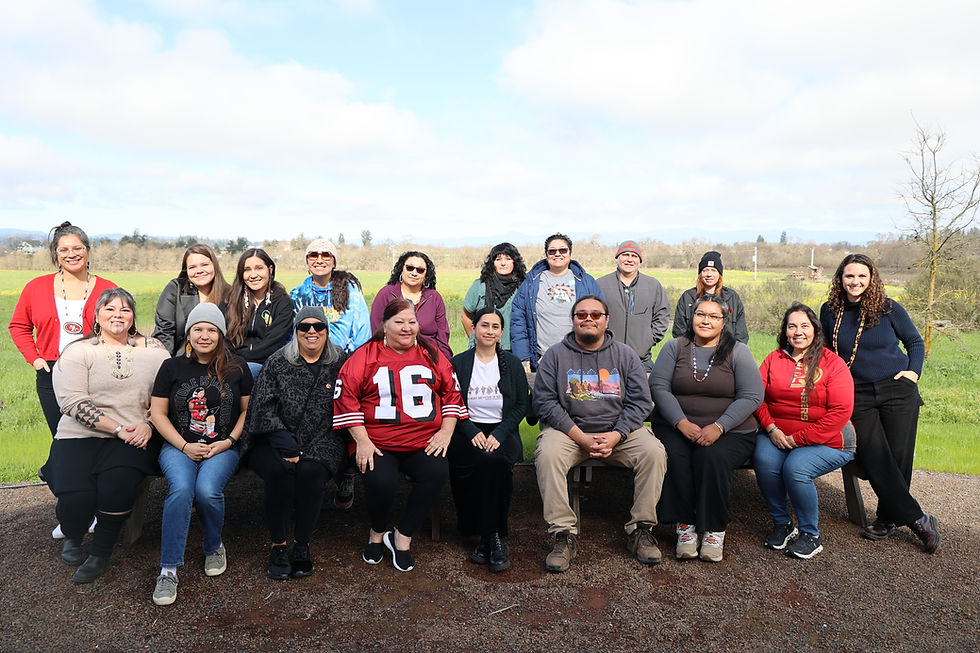Giving Thanks to the Land That Feeds Us
- Redbud Resource Group

- Jan 23, 2021
- 3 min read

Sometimes a simple shift in perspective is all we need to help us move through a challenge. When planning the event “Giving Thanks to the Land That Feeds Us” with Ali Meders Knight and Mel Figueroa, much of our conversations centered around ways we can facilitate this perspective shift through our work.
We reflected on the different ways that individuals, groups, and communities interpret what they see when they look out their windows, and how that vision is reflective of greater community values.
When gold miners flooded the ancestral territory of both Ali’s and our peoples, settlers saw the rivers, creeks, forests, and rock formations, and saw economic opportunity. They saw what they interpreted to be pristine wilderness, material abundance, and bands of primitive peoples who did not realize that they were living on top of a literal pot of gold. The way that these settlers interpreted the land around them gives great insight into the cultural values they brought: empire expansion, survival of the fittest, extraction.
Similarly, California’s early environmentalists interpreted the land through their own set of cultural values. John Muir famously described California’s natural landscapes as looking like a well groomed park, and supported an environmental agenda that claimed humans should leave the natural world untouched, undeveloped, and un-manipulated in any way. As an outsider, Muir applied his own cultural values and practices to a landscape that he simply did not understand.

The lessons introduced at “Giving Thanks to the Land That Feeds Us” offer a new way of seeing our landscapes, a way that is grounded in the Indigenous values of the people who have lived, thrived, and interacted with California’s ecosystems since Time Immemorial.
In contrast to the Gold Rush, many Native people understand that our relationships should be rooted in reciprocity, not extraction. Unlike California’s early environmentalists, Native people understand that they must take an active role in caring for their environment, through Traditional Ecological Knowledge. When we respect our land and all the living things in it, when we give back more than we take, we are acting out a set of values that will ultimately lead to greater overall wellness for ourselves and our communities.

When Native peoples observe the land, we may look for signs of imbalance and consider ways to correct those imbalances. We may notice patterns in food production and assess where more human intervention is needed. We may consider the needs of our animal and plant relatives before we decide how much to harvest. We may reflect on changes in weather and adapt our needs and ecological practices to the changing climate.
At the core of this perspective is the understanding that, as human beings on this ever changing planet, we must give thanks to the land through our words and actions, and consider the needs of all parts of our ecosystems, as we consider our own. This week, we encourage our communities and families to find ways to give back to the land in some way.
The lesson in this event was inspired by our recent curriculum “Healthy Ecosystems Feed Healthy Communities."
The slides from the event can be downloaded here:
For more news from Ali and Mel, check out TEKChico.com
Interested in learning more about Traditional Ecological Knowledge? Here are a few sources to get you started:







Comments